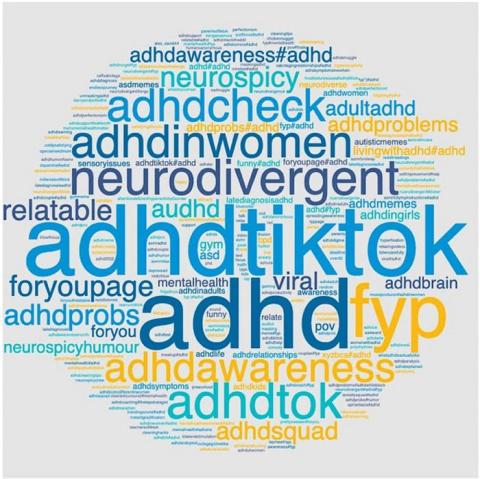Most ADHD drugs, not just stimulants, affect heart rate and blood pressure
An international team has carried out a review of studies and a meta-analysis on the cardiovascular safety of the drugs used to treat ADHD (attention deficit hyperactivity disorder). Their conclusions are that most of them, and not just the stimulants, affect the pulse and blood pressure. According to the authors, who publish the results in the journal The Lancet Psychiatry, although the changes are slight, ‘professionals should monitor blood pressure and pulse in patients with ADHD treated with any pharmacological intervention’.

Pedro Manuel Ruiz Lázaro - TA TDAH EN
Pedro Manuel Ruiz Lázaro
Head of the Child and Adolescent Psychiatry Department at the Lozano Blesa University Clinical Hospital in Zaragoza
A meta-analysis and systematic review published in a peer-reviewed scientific journal is a guarantee of good quality.
Another question is whether it contributes anything new, as on this subject it limits itself to confirming previous studies and does not change anything in the knowledge about the cardiovascular effects of stimulants and non-stimulants used in the pharmacological treatment of ADHD. That stimulants and noradrenergics increase the figures and guanfacine lowers them in the short term is known and expected.
It confirms previous findings, it does not contribute anything especially relevant. The cardiovascular safety of these drugs should not be questioned: their use does not increase mortality, it even decreases it. There are small short-term effects with no clinical impact. Long-term studies need to be increased.
I do not fully see the need for generalised and routine monitoring of blood pressure and pulse in the doctor's office during follow-up when the changes are small and without clinical relevance, except in exceptional cases. There is a need to collect personal or family history of cardiovascular disease and assess individual risk.
[Regarding possible limitations] The article reviews them:
- It is possible that people with a personal or family history of cardiovascular disease may experience greater increases in blood pressure with ADHD medications.
- Most studies are funded by the pharmaceutical industry.
Alberto Ortiz Lobo - TDAH cardio EN
Alberto Ortiz Lobo
Doctor of Medicine and Psychiatrist at the Carlos III Day Hospital - La Paz University Hospital (Madrid)
This is a comprehensive review of the adverse cardiovascular effects (and not other harms) of drugs used in the treatment of ADHD and highlights several important issues.
The first is that the research reviewed has been conducted in the short term, i.e. we know about the harms of these drugs in a window of about seven weeks, whereas in standard treatment they are prescribed for years, sometimes for much of a person's life.
The second is that the studies do not focus on assessing the adverse effects of these drugs but on their possible efficacy, so they only measure increases in blood pressure and heart rate, but we do not know about their impact on cardiac conduction as assessed through electrocardiograms, for example.
The third issue is that all the drugs assessed, and not only stimulants, increase haemodynamic parameters, with the health risk that this may entail for many patients.
The review is pertinent because the diagnosis of ADHD is dramatically increasing in recent years, mainly in children, but also in adults. The only perspective offered on this problem is a cerebral one, without considering the environmental determinants that influence the fact that it is currently a fashionable diagnosis. Within this individual and biomedical understanding of problems, typical of our current Western culture, success and academic and occupational competitiveness are highly valued, so that lower performance or performance that does not adequately conform to current social norms can be interpreted as the result of a neurological disorder.
The extraordinary increase in the prescription of these drugs with cardiovascular side effects, which is proving so profitable for the pharmaceutical companies, should make us question the lightness of the diagnosis of ADHD and open the focus to the social, cultural, familial and academic context that is driving this phenomenon.
Manuel Antonio Fernández - TA TDAH EN
Manuel Antonio Fernández
Neuropaediatrician, director of the Andalusian Institute of Paediatric Neurology (INANP)
It is a meta-analysis that seems well designed. The information it provides, although not very specific, coincides with what we know to date and what we see in routine clinical practice.
ADHD drugs have always been quite reviled and have had a bad reputation, especially stimulants.
Some have tried to present them as a kind of drug or doping to help children improve their grades at school or be calmer and less disruptive, trivialising ADHD. On the other hand, there are those who have attacked them, citing a series of adverse effects that are highly dangerous to the physical and mental integrity of the children who take them. Nothing could be further from the truth.
Regardless of the beneficial effects in regulating self-control processes in different areas of daily life, which are very important to bear in mind in order to develop a normal life, the adverse effects of these drugs are characterised by being scarce, and those that appear are generally transitory and of low intensity. There is a phrase that describes very well what is referred to in this study when referring to the cardiovascular effects of ADHD drugs. They are statistically significant, but clinically irrelevant in healthy people. In conclusion, there is no reason to reject their use because of them.
[Regarding possible limitations] They are not very relevant, but it is true that it limits itself to saying that the effects on heart rate and blood pressure are slight. There are studies that estimate this level at approximately 10%, which, as I said before, is statistically significant, but clinically irrelevant in healthy people.
Farhat et al.
- Research article
- Review
- Peer reviewed
- Meta-analysis
- People



